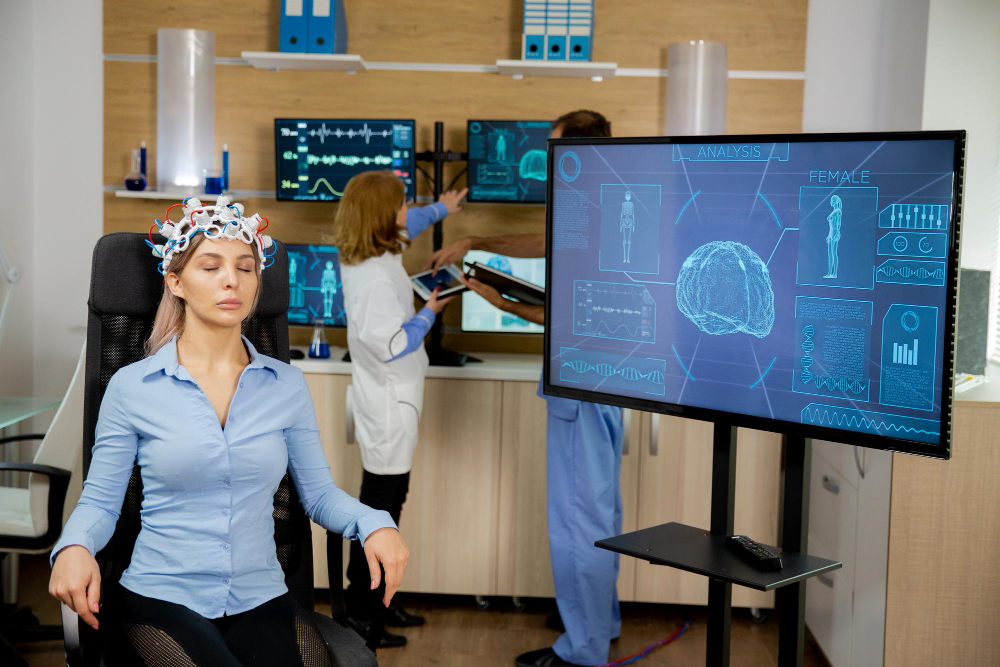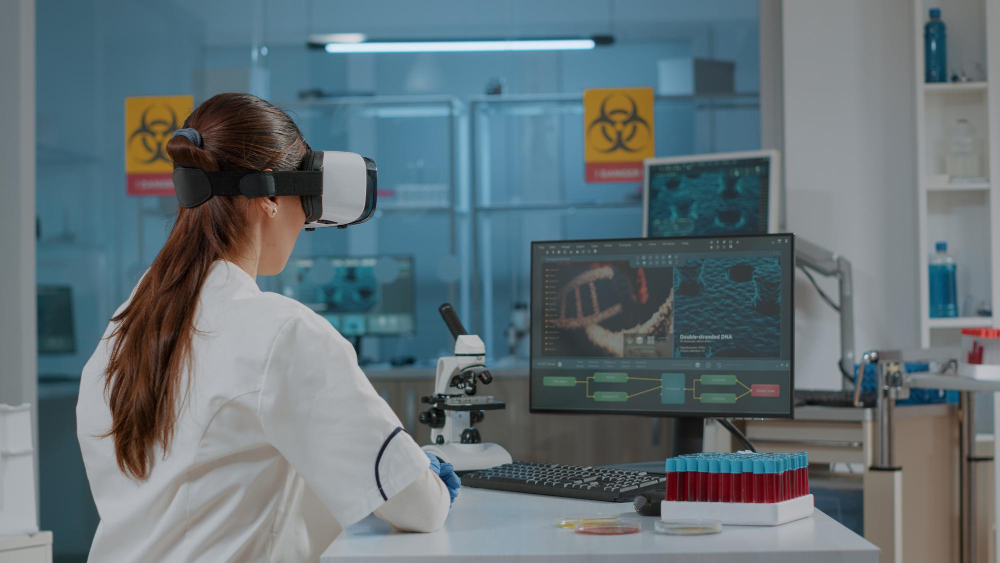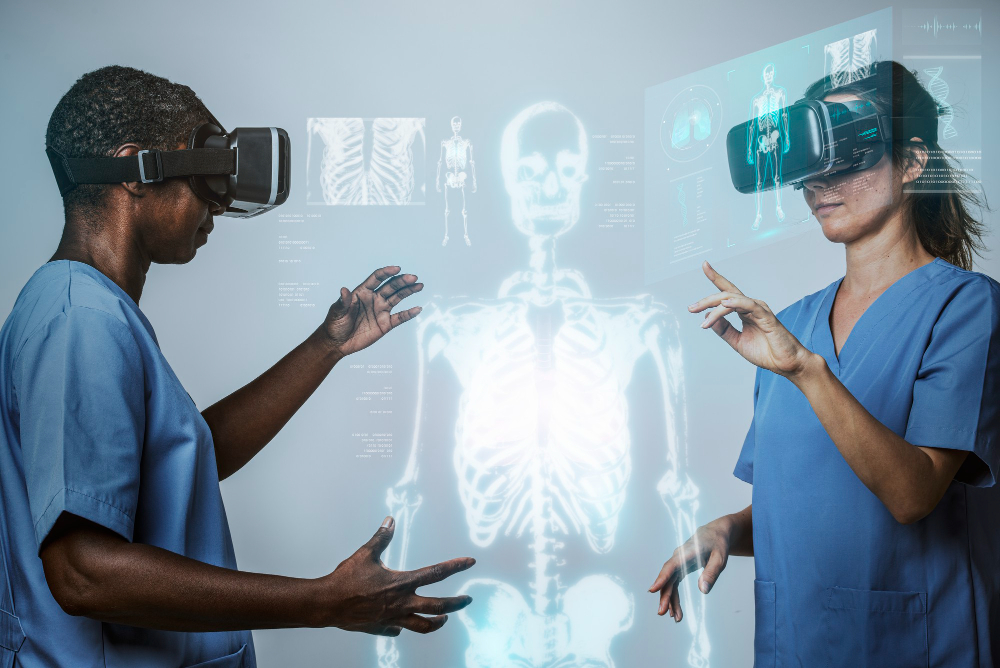Machine learning has emerged as a powerful tool in various industries. One such sector has witnessed significant transformation in healthcare. The role of machine learning in healthcare is revolutionizing the way medical professionals diagnose, treat, and manage diseases. By leveraging the vast amount of data available, machine learning algorithms can analyze complex patterns, detect anomalies, and make predictions, ultimately leading to improved patient outcomes and more efficient healthcare systems.
Advantages of Machine Learning in Healthcare
Machine learning holds immense potential in healthcare, offering a wide array of benefits that can enhance the delivery of medical services. Here are some key areas where machine learning is making a remarkable impact.

1. Disease Diagnosis and Prognosis
Machine learning algorithms can process and analyze large datasets of patient information, including medical records, lab results, genetic data, and imaging scans. By recognizing patterns and correlations within this data, machine learning models can aid in accurate disease diagnosis and prognosis. This technology enables early detection of diseases such as cancer, cardiovascular conditions, and neurological disorders, leading to timely interventions and improved patient outcomes.
2. Personalized Treatment Plans
Each patient’s medical history and genetic makeup are unique, and machine learning algorithms can leverage this information to generate personalized treatment plans. By considering various factors such as demographics, genetic profiles, and treatment response data, machine learning models can recommend the most effective treatment options for individual patients. This approach enhances precision medicine and ensures that patients receive tailored therapies, improving treatment efficacy and minimizing adverse effects.
3. Drug Discovery and Development
The process of discovering and developing new drugs is both time-consuming and costly. Machine learning techniques can accelerate this process by analyzing vast amounts of biological and chemical data, identifying potential drug candidates, and predicting their efficacy. This enables researchers to prioritize the most promising compounds for further investigation, reducing the time and resources required for drug discovery.
4. Predictive Analytics for Patient Monitoring
Machine learning algorithms can continuously monitor patient data, such as vital signs, symptoms, and treatment adherence, to detect any deviations from expected patterns. By employing predictive analytics, healthcare providers can anticipate potential complications or deteriorations in a patient’s condition, enabling timely interventions. This proactive approach not only improves patient outcomes but also reduces hospital readmissions and healthcare costs.
5. Medical Image Analysis
Interpreting medical images, such as X-rays, MRIs, and CT scans, can be a time-consuming and error-prone task. Machine learning algorithms can analyze these images and assist healthcare professionals in detecting abnormalities, identifying specific anatomical structures, and diagnosing conditions. This technology enhances the accuracy and efficiency of medical image analysis, enabling faster diagnoses and more precise treatment planning.
FAQs about Machine Learning in Healthcare

1. How does machine learning improve disease diagnosis?
Machine learning algorithms can analyze vast amounts of patient data, including medical records and imaging scans, to identify patterns and anomalies. This aids in accurate disease diagnosis by enabling early detection and providing more objective assessments based on data-driven insights.
2. Can machine learning algorithms predict treatment outcomes?
Yes, machine learning models can analyze patient data, treatment records, and genetic information to predict treatment outcomes. This enables healthcare professionals to make informed decisions regarding treatment plans and select the most effective interventions for individual patients.
3. What role does machine learning play in drug discovery?
Machine learning techniques can analyze vast amounts of biological and chemical data to identify potential drug candidates. This technology accelerates the drug discovery process by prioritizing promising compounds for further investigation, ultimately leading to the development of new and more effective medications.
4. How does machine learning aid in medical image analysis?
Machine learning algorithms can analyze medical images to detect abnormalities, assist in identifying anatomical structures, and aid in the diagnosis of various conditions. This technology enhances the accuracy and efficiency of medical image interpretation, facilitating faster and more accurate diagnoses.
5. Can machine learning improve patient monitoring?
Yes, machine learning algorithms can continuously monitor patient data, including vital signs and symptoms, to detect deviations from expected patterns. This enables healthcare providers to anticipate potential complications and intervene proactively, leading to improved patient outcomes and reduced healthcare costs.
6. Is machine learning in healthcare secure and private?
Ensuring the security and privacy of patient data is a crucial aspect of implementing machine learning in healthcare. Robust security measures and strict data protection protocols should be in place to safeguard patient information and comply with relevant regulations, such as HIPAA (Health Insurance Portability and Accountability Act).
Conclusion
Machine learning is transforming the healthcare industry, empowering medical professionals with powerful tools to improve diagnosis, treatment, and patient outcomes. By leveraging the vast amount of available data and sophisticated algorithms, machine learning brings efficiency, accuracy, and personalization to healthcare practices. From disease diagnosis and personalized treatment plans to drug discovery and predictive analytics, the role of machine learning in healthcare continues to expand, promising a future where healthcare is more precise, accessible, and effective.

